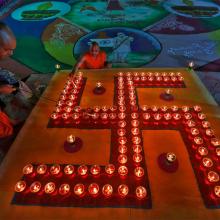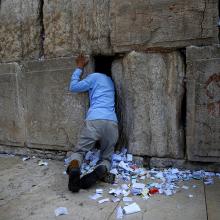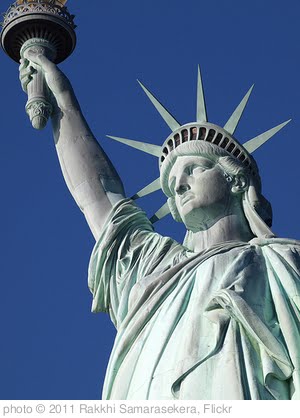romans
JEWISH NEW TESTAMENT scholar Amy-Jill Levine claims that all religions are a little bit supersessionist. Christian supersessionism — which understands God’s covenant with Christians to nullify God’s covenant with the people of Israel — has been so mainstream throughout most of Christian history that it has hardly required articulating. It was just the anti-Jewish water in which we swam. Following the Holocaust, however, Christians recognized how much we’d weaponized supersessionism into antisemitism, which provided support for Nazi and white supremacist ideologies and perpetuated anti-Jewish violence. Unfortunately, Levine argues, no exegetical maneuver can fully expunge supersessionism from the New Testament — though many have tried. It’s there. And the authority of God’s word in Christian lives keeps its dangerous power ever-present.
Still, Paul’s letter to the church in Rome (which we read this month) contains Paul’s own grappling with these questions. Chapters 9 to 11 — wherein Paul corrects some of the Gentile converts who think God has now rejected the covenant with Israel — comprise the hook on which most contemporary attempts to dismantle supersessionism hang their hat. So, we’ll pay special attention to these.
This isn’t going to be an easy fix — particularly for Christians (like me!) who want to hold fast to the gospel, atone for complicity with antisemitism, and stand in solidarity with Palestinians under occupation. Still, I trust God’s promises: I believe both that God’s covenant with Israel endures and that Jesus is the Messiah. So, this month, we are going to sit with the discomfort of failing while attempting the impossible. Because, in trying, we might find a new way through.
How the “welfare state” is designed to subsidize affluence rather than fight poverty.
BEFORE THE PANDEMIC hit, I could have told you the precise number of my indoor plants: zero. But then lockdown started and, like countless people around the world, I became obsessed with all things leafy and green. Once I learned how to keep a plant alive, I began to nurture cuttings. To see that first fresh leaf grow — an assurance that new roots had taken hold — filled me with a kind of joy heretofore unknown.
I needed to feel like life could not just survive, but flourish and thrive. “Give this at least six weeks before repotting,” I would text a friend from her porch as I dropped off the gift of a budding leafy monstera, “just to let the roots settle.” Then I’d trudge back to the sidewalk to watch my friend open her door, wave to me, and take this small extension of myself into her home. Months later, when we could visit in person, I’d get to see how much these little ones had grown. Great leafy extensions of love.
Most of the gospel readings this month contain horticultural parables — seeds and soil, wheat and weeds, sowers and reapers. Before the COVID-19 years, I had never read these parables through the eyes of someone who had nurtured plants to life. Their images had been abstractions, ideas, metaphors with no roots. But now that those seeds have grown, I see each one anew. Perhaps you do too?
WE HAVE SEVERAL readings this month where God creates something out of nothing — or at least out of pretty limited materials. In the opening chapters of Genesis, we see creation birthed from God’s imagination and curiosity. In the story of Sarah and Abraham, a child is conceived in a womb so postmenopausal that the now-pregnant woman can’t help but laugh (Genesis 18). A well appears from nowhere to quench the thirst of a dying woman and her child (Genesis 21:19). God “calls into existence the things that do not exist” (Romans 4:17). And God turns death to life through the mysteries of resurrection (Romans 6:1-11).
This month’s lectionary readings make God’s continuous creation — as well as God’s continual renewal of creation — explicit. But the fact is, once we’re looking for it, all of scripture tells these stories of renewal. God is always creating, re-creating, and reimagining our world. God is always making a way where there was no way before. God continually turns death to life. And, just as importantly, we are called to participate in God’s divine practices of continuous creation, in God’s own divine practice of everyday resurrection.
As we exit a series of some of the higher holy seasons in the liturgical year — Epiphany, Lent, Easter, and Pentecost — June quiets down from such intensity. The slower pace to which (in some places) the warm summer sun calls us can inspire us to seek out everyday resurrection wherever God hides it. How is the Spirit calling you to partner with divine practices of renewal, with everyday resurrections?
In one weekend, the swastika appeared in public places in three U.S. cities — Houston, Chicago, and New York. The sight was so offensive, average New Yorkers pulled out hand sanitizer and tissues to wipe the graffiti from the walls of the subway where it had been scrawled.
“Within about two minutes, all the Nazi symbolism was gone,” one subway rider who was there said. He added, “Everyone kind of just did their jobs of being decent human beings.”
Hoping for divine intervention – or Jewish votes – Donald Trump wrote a short prayer to be inserted in between the stones of the Western Wall.
Trump’s team photographed and sent a copy of the handwritten prayer to Ynet News and Yedioth Ahronoth, Israeli sister publications. The original was handed to David Faiman, a Trump advisor, who was heading to Israel, the news outlets reported.
“What did you do on your summer vacation?”
Even now students may be answering that question in essays at the start of this new school year. Maybe you wrote such a paper years ago. No matter what you did or where you went this past summer, it was almost impossible to escape the heaviness of the headlines. #BringBackOurGirls has become a distant refrain, almost forgotten beneath the crush of summer tragedies:
Thousands of children traveled alone from Central American countries to enter the U.S. as refugees. Ebola deaths spread to more West African nations killing hundreds including many health workers. The forces of ISIS, intent on carving out an Islamic caliphate, took over major Iraqi cities and beheaded a U.S. journalist in Syria. Russia usurped Crimea and threatened the rest of Ukraine. The U.N. refugee agency announced in late August that “the number of refugees, asylum-seekers and internally displaced people worldwide has, for the first time in the post-World War II era, exceeded 50 million people.” Gaza has been reduced to rubble while Hamas rockets still fly toward Israeli cities. Michael Brown, an eighteen-year-old African American man who might have started college this week, was shot and killed by a white police officer in the waning days of August.
After such a summer, how can we do anything but scoff at Paul’s words from Romans?
What more perfect a passage to enliven our Earth Day celebrations than Romans 8:20-25?
Paul's letter to the Romans was certainly not an exhortation to deepen creation care by weighting it with environmental justice. It wasn't an exhortation for the middle-class church to listen to the groaning of people under the bondage of environmental racism. It wasn't intended to paint a picture of the intersection of climate change, poverty, and racism.
But we — two evangelical activists — are just foolish enough to give all that a try in this short space!
Our dear Apostle Paul in his letter to the Romans paints a picture of the new age inaugurated by Jesus' death and resurrection. Jesus has taken sin – that which infiltrated the world (5:12), enslaved the world (6:6, 17-18), and brought death and destruction (7:8-14) — and had victory over it. By our death in baptism and resurrection with Christ, we participate in his victory over sin (6:4). This is a new age, we put on our new selves, we live with the (re)new(ed) creation ahead of us.
Last week during my Sunday school class, one of my second graders asked, “How can we go to heaven, if we continue to sin?”
As usual, I am often stunned and quieted by the striking questions that come from the mouths of young people.
I usually respond to the inquisitive questions from my Sunday School students by reiterating what I have been told by many a Sunday School teacher: “Even though we break our promises, God doesn’t; God promised us if we believe in God and that God’s Son Jesus died for our Sins, we will go to heaven — even when we mess up.”
While that seems like a really ‘simple’ explanation of one of many biblical truths, it is still striking and amazing that even though we continue to ‘mess up,’ God has not retracted on God’s promise of offering us a beautiful ending to the troubled world we live in today.
As I think about Romans 8:21 and how it speaks to the fact that “creation itself will be liberated from its bondage to decay and brought into the freedom and glory of the children of God,” I get excited. Not only because we all will see the glory of God one day, but that the bondage and decay we are experiencing in our physical world will end in Glory!
"I will call them my people, who were not my people. And her beloved, who was not beloved." (Romans 9:25 referencing Hosea 2:23)
Estranged, alienated, and removed; anyone living in an industrialized modern society in the 21st century would be able to define, or at least identify the sentiments of these words. Our time is one of mass communication and instantaneous access to knowledge. And yet our lives are too compartmentalized, increasingly divided, and our society reflects this. Indeed the existential writers of yesteryear were correct in diagnosing the iron cage that would befall us, ultimately leading to an eclipse of reason.
For many years now, religious leaders and diverse faith groups have contributed much to the ongoing immigration debate.









